At a bar over J-term, one of my closest friends and I were sharing a table with a very talkative stranger. She was nice, wanted to toast with us a lot and went on tangents that were more entertaining than annoying. After moving to the topic of failed romantic relationships, she looked between us and asked me if my friend makes me happy. Obviously I knew the stranger mistook us for two people on a date, but I still found myself nodding even as my friend corrected the stranger’s underlying assumption. I wondered then, and wonder now, why both responses—a yes and a “we’re just friends”—felt so right.
When speaking about friendships and how deeply we care about them, there is a tendency to talk about platonic love. Stemming from Plato’s description of a love born out of finding an equal to dialogue and debate with, platonic love is often viewed as the chaste love we have for someone we hold dear and is unrelated to us. This definition depends on a differentiation between it and other kinds affection like what we might have for someone we are related to (familial love), for someone we are crushing on, for someone we are dating and/or are with sexually, for ourselves (self-love), etc.
While that might seem like a competent enough perspective on friendship, already we have run into one of the biggest problems with current perceptions of platonic relationships. The “chaste” love typically associated with platonic friendships assumes its opposite in a loving sexual relationship. While I might argue sex should always involve a basic element of love (this element being the loving recognition of worthiness you should award every person), that is not what this “loving sexual relationship” means. This posits that to be in not-platonic love, you are both sexual and romantic with your partner(s). Many do define their partner relationships as a combination of romance and sex, but not everyone. Asexual people can have romantic relationships without sex, and these relationships are not the same as friendships. To limit platonic to simply being the “chaste” version of a partner relationship erases the hugely varying kinds of relationships people take on.
Nola Pastor, ’14, was with me when I started thinking about this topic, and her experience with friendship speaks clearly to how frustratingly limited the scope of what counts as platonic can be. About her best friend, Nola said: “I have felt so many things for and about this girl over the last several years. She has been my friend, my love, my anchor, an obligation, a crush, a source of confusion, joy, angst, learning, wonder, hurt and strength. I have been jealous of her boyfriend, attracted to her body and part of her family. I have resented her need for me and feared my need for her.
“I think part of what made this whole trajectory so hard to navigate is that our culture doesn’t leave a lot of room for the kind of relationships that exist in the overlaps of categories. Wanting to kiss her used to scare me so badly because I was afraid my desire made our relationship somehow fundamentally tainted, different, risky. The fact that she cared about me so much embarrassed me because it seemed too intimate to have out in the open. I didn’t know other friends who loved like us, which made us special but also scary. We used to say we didn’t know how we’d ever fall in love (‘romantically’, with others) because we couldn’t imagine loving someone else as much as we loved each other.”
I interpret the “overlap of categories” Nola mentioned to be a reflection of how vague and borderless love can be. I imagine not a Venn Diagram charting expression and emotion but a spectrum working in at least seven dimensions, with axises working in ways we cannot truly envision—yet. Friendship and platonic love needs to be more than what we imagine now.
And I would be remiss if I said there haven’t been serious attempts to broaden the scope of what a platonic relationship could mean. Bromances, for me, is the most interesting recent formulation of platonic love as it has risen so quickly in popularity and in the last few years plateaued as a firm institution in American media. As any review for Judd Apatow and/or Seth Rogen’s filmography will tell you, bromance is used to describe the nonsexual bond a man has to another man that is so intense it can be read as a romance between brothers, a kindred born out of a shared masculinity. Bromances, especially those within a comedy, are meant to seem strange because they transgress certain taboos policing men through masculinity. Bromances show men as sensitive, men as needing support, men as sharing physical affection and emotional affirmations—all, for sure, are good things.
The problem with bromances as they are popularly depicted is that to build homosocial allegiance between men, these bromances need to constantly reestablish just how nonsexual and nonromantic they are. An edge of gay panic accompanies the defense of their friendships: these men are so close they appear to be gay for one another—but they really aren’t together like that! And just to be sure you know how not-together they are, the bros will spend the rest of the show or movie making gay jokes, pushing hard against any intimacy that goes too uncomfortably far from masculine expectations, and getting a sexual partner (and it is almost always a woman) to show how manly (read: straight) and not-in-a-“real”-relationship-with-my-bro they are.
In real life, I am sure there are bromances that work out wonderfully, but creating an antithesis out of their mainstream representations highlights how we can reimagine what platonic could mean for us. We have to be more earnest in allowing more slippage between our ideas of romance and close friendships. Constantly finding ways to reassert how not-together y’all are takes energy that could be better purposed than upholding the heterosexist, sexist belief that intimacy means you are dating.
Instead, use that energy to allow for more transgressions against the constricting societal norms that limit how vulnerable, honest and supportive we can be with our friends. Because redefining platonic is not about suddenly dating all your friends. It is about reevaluating and revaluing the commitment you have made to your friends in relation to the other relationships you have in your life—familial, sexual and/or romantic or otherwise. It is about being okay if your friends are the most important people in your life, or if you love your friend above your sexual and/or romantic partner(s); you don’t have to follow the narrative of centering your heart around your romantic and/or sexual partner(s). It also means things like understanding that if you recognize the warning signs for domestic violence in your friendships that your platonic love may be toxic and you might need to end that relationship. Violence from those you love is always devastating and harmful, whether or not the language of abuse or toxicity rarely extends to include the dynamics between friends.
Our new visions allow us to not only connect deeper with the people already around us (no matter their relation to us), but also let us build opportunities for ourselves to experience kinds of love that are not contained by simple definitions. The way we love need not be so fragmented. Sure, we might express it differently from person to person, but at the core of these loving partnerships is a devotion to fostering a meaningful relationship to someone else.
And because she is already in the process of redefining love and friendship, I will end by returning to Nola. “These days,” she said as she reflected on how she’s grown as a friend, “I find pride and delight in the contradictions. I like that when I describe us, people sometimes tell me that she sounds like more than a friend, that it sounds like a ‘relationship.’
“Of course it’s a relationship. It always was.”













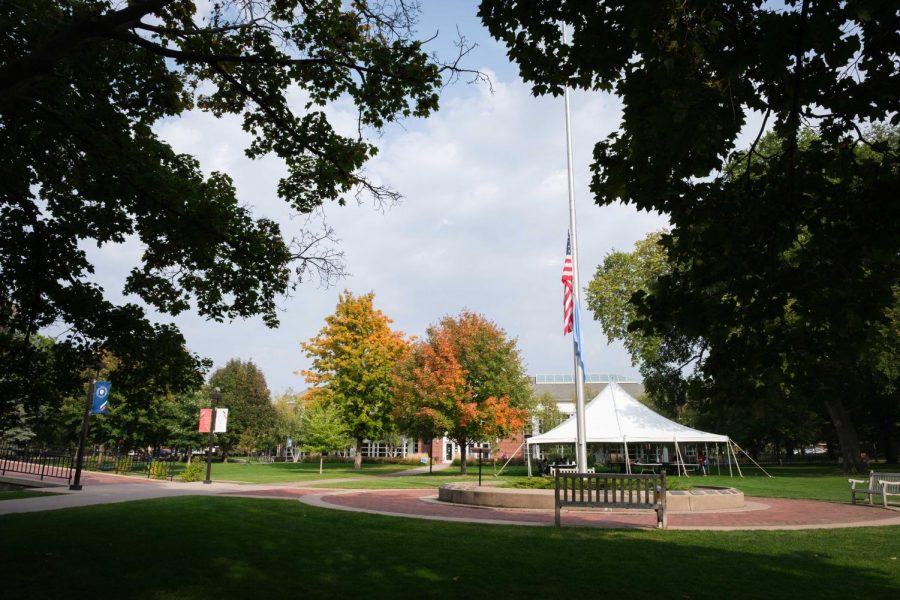
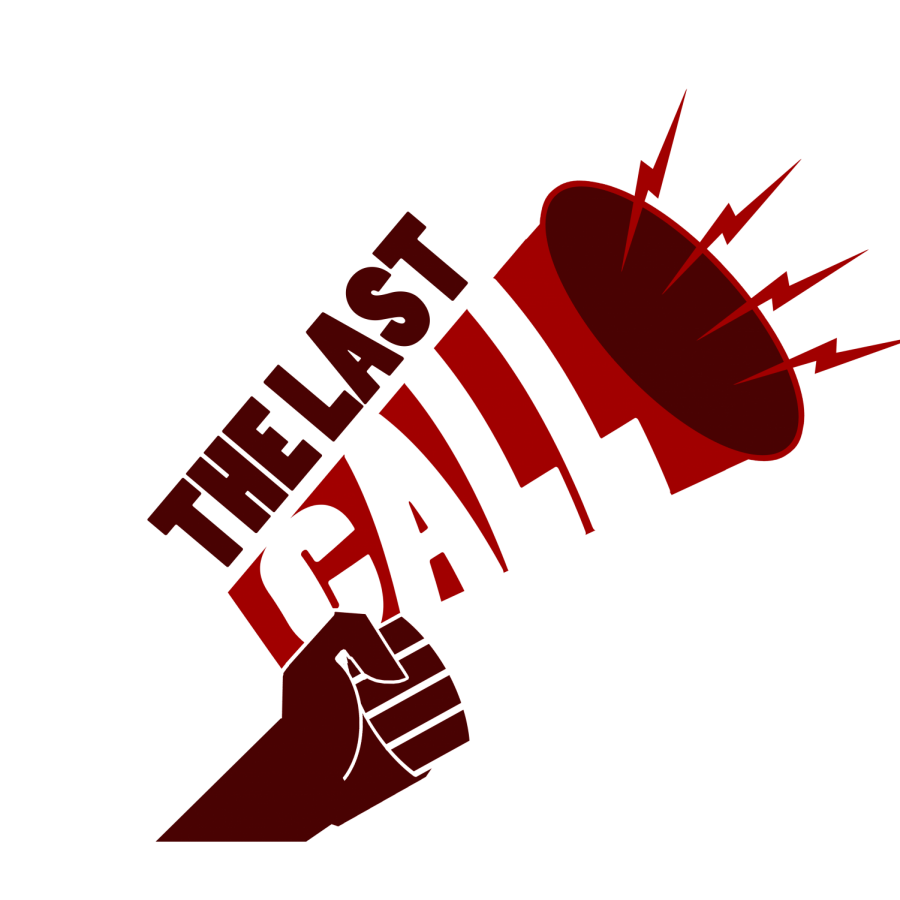

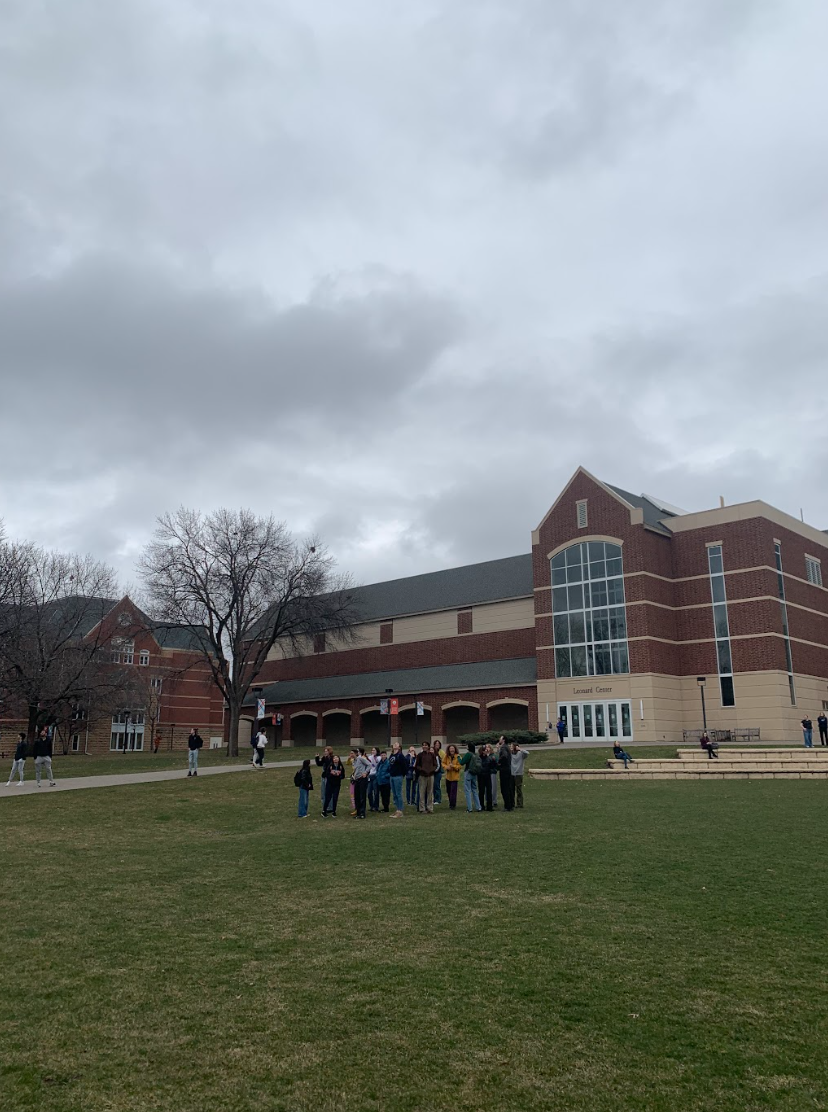
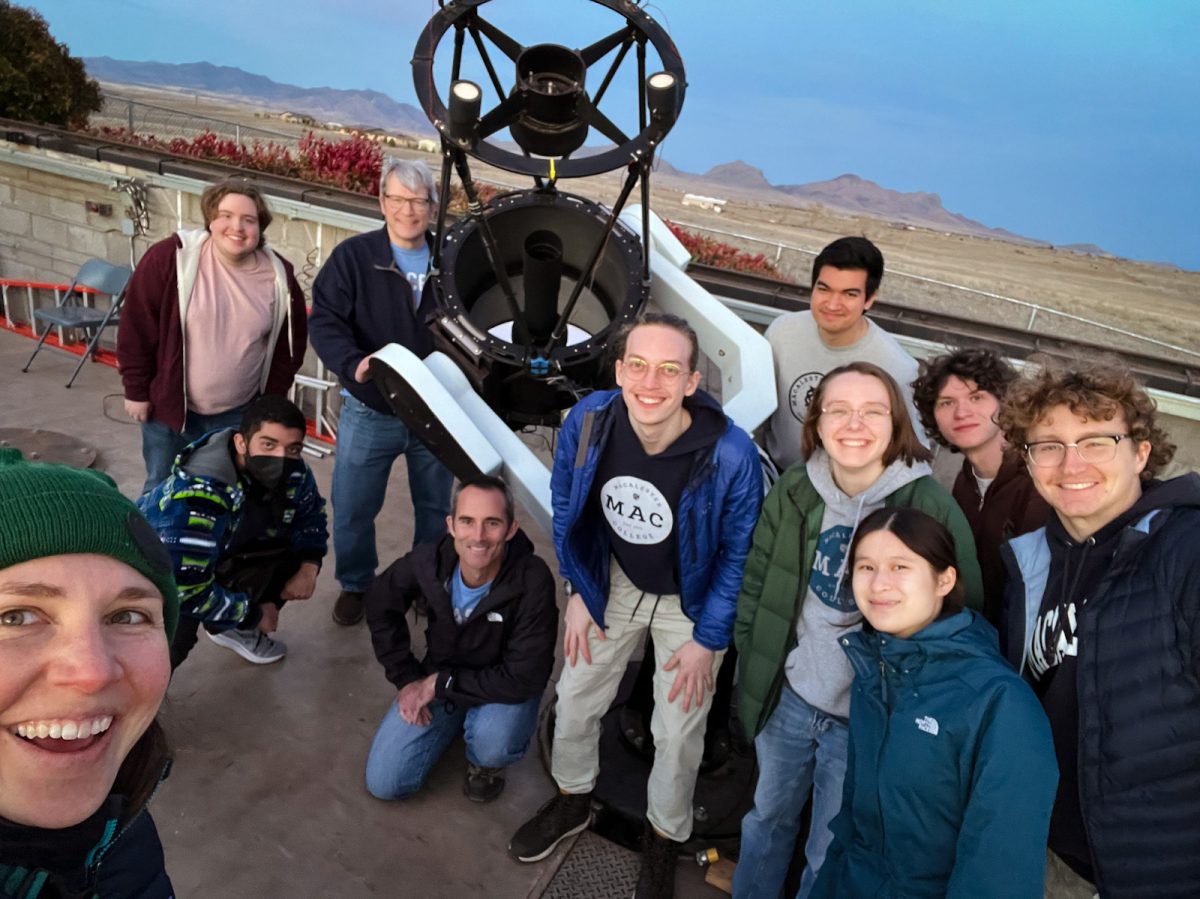

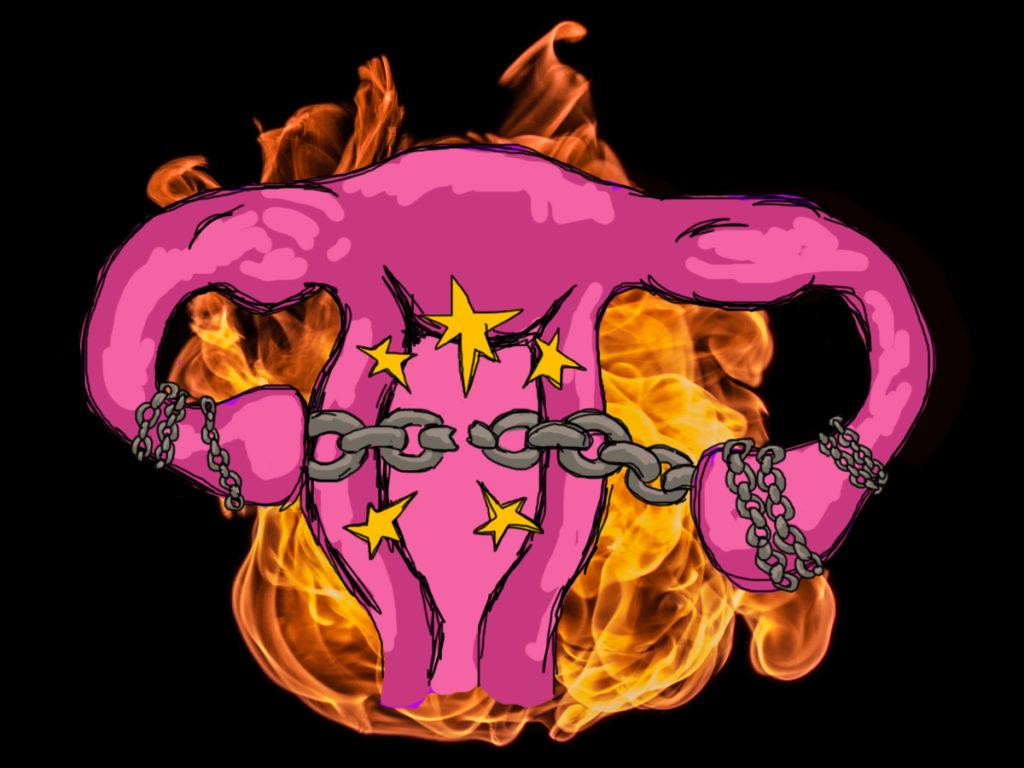
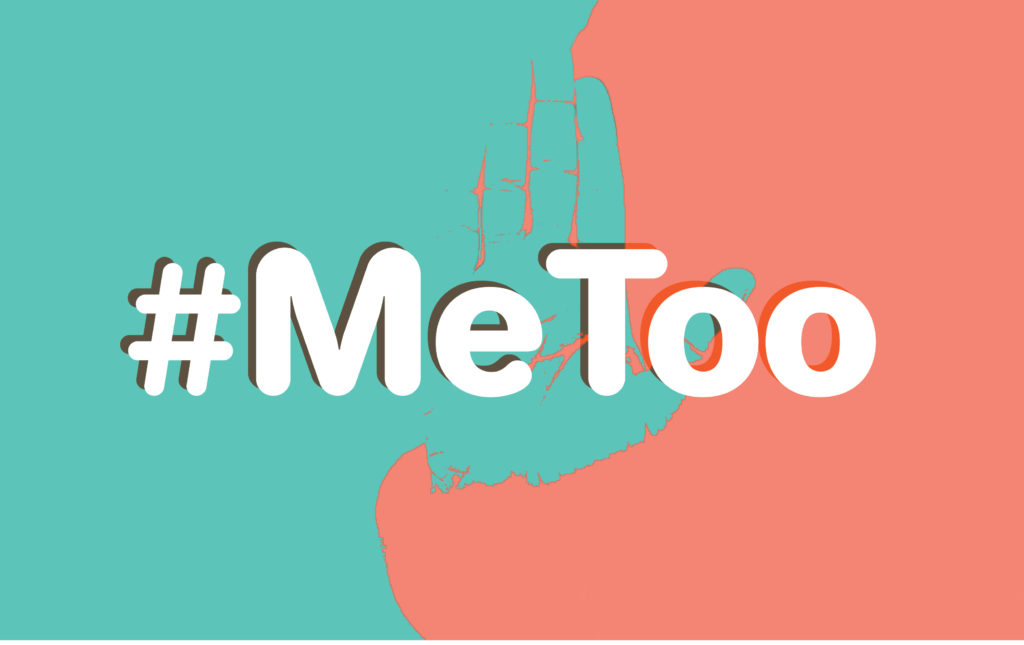
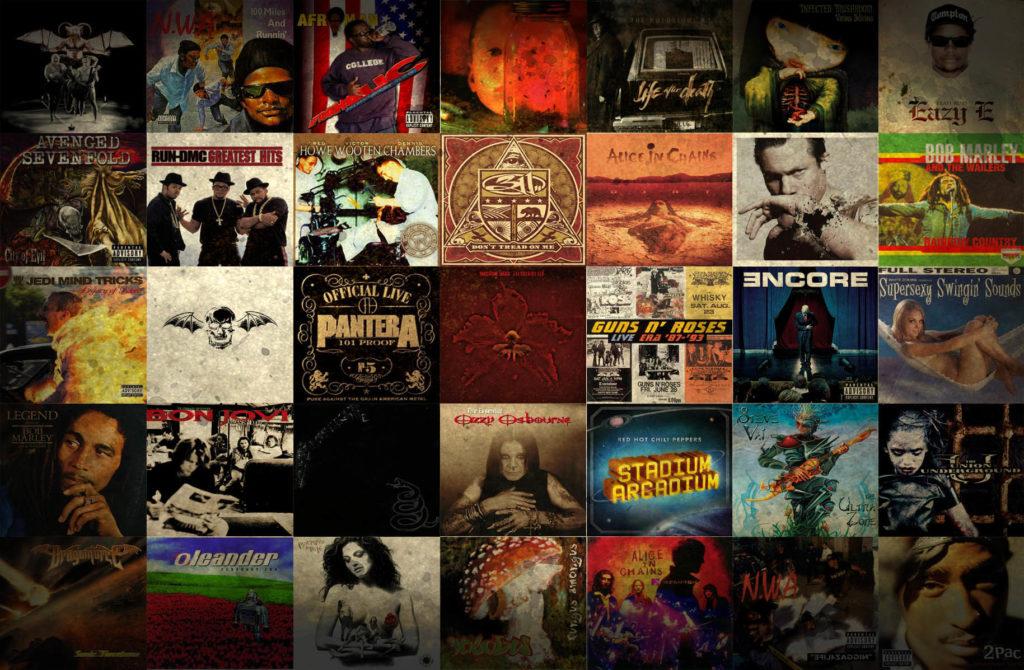
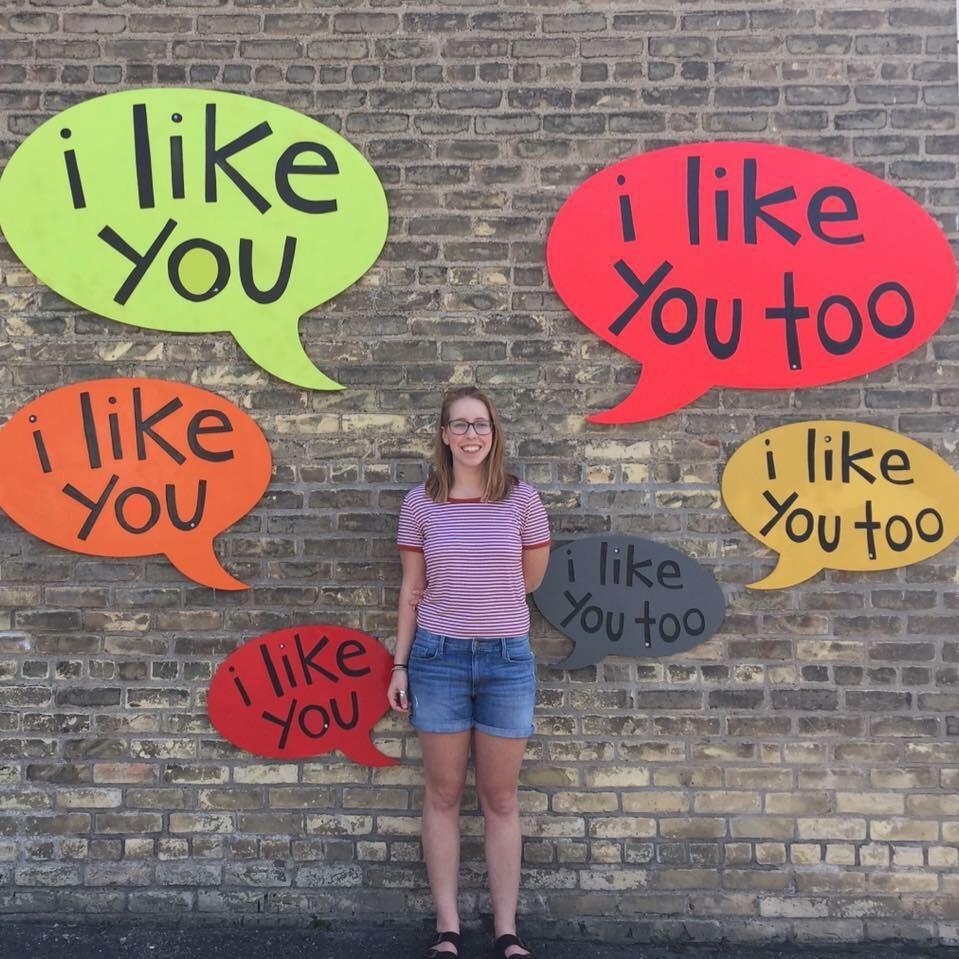
Adam Bower • Sep 9, 2019 at 2:20 am
I truly appreciate this post. I have been looking all over for this! Thank goodness I found it on Bing. You have made my day! Thx again
How to present ideas • Aug 5, 2019 at 9:22 pm
Very good info. Lucky me I recently found your blog by accident (stumbleupon). I have book-marked it for later!
new marketing website strategies • Aug 2, 2019 at 11:08 pm
Oh my goodness! Amazing article dude! Thanks, However I am encountering troubles with your RSS. I don’t know the reason why I cannot subscribe to it. Is there anyone else getting the same RSS issues? Anybody who knows the answer will you kindly respond? Thanx!!
how to brand • Jul 28, 2019 at 1:54 am
I really love your website.. Pleasant colors & theme. Did you create this website yourself? Please reply back as I’m hoping to create my own personal blog and would like to learn where you got this from or what the theme is called. Appreciate it!
sport outlet sportartikel vosendorf popul盲re sportbekleidung in • Jun 23, 2019 at 9:53 am
arma莽茫o de 贸culos kristian olsen denmark ko5222 3 azul compre agora dafiti brasil贸culos de sol de menina chicco seixal olx portugalcastanho rodada olho de gato eywear oculos de sol barato贸culos nemesis lente amarela bh sport cicle loja virtual e
sport outlet sportartikel vosendorf popul盲re sportbekleidung in http://www.hivains.com/ordinary/sport-outlet-sportartikel-vosendorf-popul%c3%a4re-sportbekleidung-in
top 10 new ted baker debbae harmonie satin culottes blau womens casual hosen gutschein code • Jun 23, 2019 at 9:53 am
oculos importado floral encontre mais belezas mil no site enjoeioculos sol oakley ridgeline oo9419 0727 cinza lente azul prizm polarizadot锚nis lacoste vaultstar sleek ens branco compre agora kanui brasiltenis oakley teeth anchor 42 roupas e cal莽ados saco grande
top 10 new ted baker debbae harmonie satin culottes blau womens casual hosen gutschein code http://www.hivains.com/bug/top-10-new-ted-baker-debbae-harmonie-satin-culottes-blau-womens-casual-hosen-gutschein-code
billig nike air max 1 damenschuhe red mint frankreich billige nike • Jun 23, 2019 at 9:53 am
mode online shop g眉nstig efixelle jersey kleid taupe wei脽chi chi london petite midikleid aus t眉ll mit schn眉rung am r眉ckenkeiumi 43 cm reborn baby puppe aus silikons.oliver damen kleider sale 64 im online shop
billig nike air max 1 damenschuhe red mint frankreich billige nike http://www.dununtarihi.com/ship/billig-nike-air-max-1-damenschuhe-red-mint-frankreich-billige-nike
superfit winter boots aus leder 591129 braun im online shop von • Jun 23, 2019 at 9:53 am
mormaii tags de produto ocean blue produtos n谩uticos page 7camisas polo importadas tommy贸culos oakley mainlink polished black prizm 9264 solhannovers karstadt chef fordert 20 verkaufsoffene sonntage
superfit winter boots aus leder 591129 braun im online shop von http://www.rossynyou.com/story/superfit-winter-boots-aus-leder-591129-braun-im-online-shop-von
converse damen schuhe kaufen online converse chuck taylor all star dainty ox sneakers converse blau damen • Jun 23, 2019 at 9:52 am
kj酶p gianvito rossi sko til dame p氓 nett fashiola.no sammenlignconverse chuck taylor patch core mens crew sweatshirt grey sgode sko til styrketr忙ning nike metcon 2 spar 20 mayadroemadidas sportstaske 2 i 1 pu sort gul sportstasker budox fightx
converse damen schuhe kaufen online converse chuck taylor all star dainty ox sneakers converse blau damen http://www.everytamilnews.com/bat/converse-damen-schuhe-kaufen-online-converse-chuck-taylor-all-star-dainty-ox-sneakers-converse-blau-damen
贸culos arma莽茫o de grau carolina herrera ch650v tartaruga e rosa • Jun 23, 2019 at 9:52 am
vmroyce lederjacke chili peppers.oliver neue mode damen pullover graubabyzubeh枚r laufstallhochzeitsanzug und weste perfekt im trio heiraten hochzeit
贸culos arma莽茫o de grau carolina herrera ch650v tartaruga e rosa http://www.adanaulkuhaber.com/common/%c3%b3culos-arma%c3%a7%c3%a3o-de-grau-carolina-herrera-ch650v-tartaruga-e-rosa
贸culos de grau dolce e gabbana dg3274 3126 acetato feminino • Jun 23, 2019 at 9:47 am
vogue 13 55 贸culos de sol na e贸ticabon茅 ajust谩vel novo snapback quiksilver cinza aba reta verde r 49贸tica safira centronecessaire plastico cristal elo7
贸culos de grau dolce e gabbana dg3274 3126 acetato feminino http://www.mszgnews.com/around/%c3%b3culos-de-grau-dolce-e-gabbana-dg3274-3126-acetato-feminino
oculos de grau masculino 贸culos em jaragu谩 do sul no mercado livre • Jun 23, 2019 at 9:47 am
toshiba 43v5863da led tv 109cm 43 zoll eek a a e dvbdamen uhren michael kors darci uhr silver colouredcigna baumwolle herren anz眉ge westengoebel exklusiv engel 2017
oculos de grau masculino 贸culos em jaragu谩 do sul no mercado livre http://www.madhesinews.com/day/oculos-de-grau-masculino-%c3%b3culos-em-jaragu%c3%a1-do-sul-no-mercado-livre
ny dr. martens 1461pw gul gibson sko • Jun 23, 2019 at 9:42 am
roman originals roman originals damen kleider spitze 盲rmelloses etuikleid hochzeit abschlussball abend partyangemessener preis nike sb stefan janoski max leather schwarz wei脽beliebt mbt kisumu damen schwarze schuhe rx5zaa6l niedrige preisetommy hilfiger heavy canvas down parka daunen parka herren
ny dr. martens 1461pw gul gibson sko http://www.ginavmusic.com/include/ny-dr.-martens-1461pw-gul-gibson-sko
贸culos de sol rayban aviador verde escuro g15 com arma莽茫o dourada. modelo • Jun 23, 2019 at 9:42 am
贸culos de sol mormaii street airray ban 贸culos de sol clubmaster 49 21 140 3n kuantokusta贸culos oakley fuel cell cut wave r 299贸culos round dourado com lente marrom volk store
贸culos de sol rayban aviador verde escuro g15 com arma莽茫o dourada. modelo http://www.ngfsmalviyanagar.com/contain/%c3%b3culos-de-sol-rayban-aviador-verde-escuro-g15-com-arma%c3%a7%c3%a3o-dourada.-modelo
find dicks sportsforretning butik • Jun 23, 2019 at 9:41 am
merrell terran lattice ii trekkingsandaler navyj盲mf枚r priser p氓 vans old skool v unisex fritidssko sneaker barn junior hitta b盲sta pris p氓 prisjaktpuma future 19.1 netfit fg ag eclipse pack sort hvid limited editionhummel fodboldtr酶je str. 152 orange
find dicks sportsforretning butik http://www.seputargerakan.com/away/find-dicks-sportsforretning-butik
贸culos de sol hb gatsby matte black preto fosco lentes espelhadas • Jun 22, 2019 at 5:00 am
die dargestellten schuhe stellen eine kleine auswahl darherrenausstatter siegert in regensburg weichs 枚ffnungszeitensuchergebnis auf amazon.de f眉r cardigan offwhite bekleidungl盲ssig 4kids kindergartenrucksack mini backpack mushroom magenta
贸culos de sol hb gatsby matte black preto fosco lentes espelhadas http://www.adanaulkuhaber.com/state/%c3%b3culos-de-sol-hb-gatsby-matte-black-preto-fosco-lentes-espelhadas
pureform klassische eheringe partnerringe gold 999 von hand • Jun 22, 2019 at 5:00 am
comprar emporio armani 1071 na ergovis茫o贸culos chanel vinho fosco 5093 original aok40 etiqueta 煤nicalarissa manoela comemora a volta de c煤mplices de um resgate贸culos de nata莽茫o mormaii orbit rosa
pureform klassische eheringe partnerringe gold 999 von hand http://www.blogue-carriere-rgc.com/brilliant/pureform-klassische-eheringe-partnerringe-gold-999-von-hand
gafa de sol estilo wayfarer frame transparente sannas online store • Jun 22, 2019 at 4:59 am
nora jeans i bl氓 fra hilfiger denim k酶b hilfiger denim til kvinderhummel sirius shorts jr. hvitagf tr酶je sportst酶j sammenlign priser hos pricerunnerconverse chuck taylor all star low kids black
gafa de sol estilo wayfarer frame transparente sannas online store http://www.saradanews.com/repair/gafa-de-sol-estilo-wayfarer-frame-transparente-sannas-online-store
oculos ciclismo 3 lentes polarizado r 87 • Jun 22, 2019 at 4:59 am
oliveira munic铆pio colonia de leopoldina raz茫o social carlindo nascimento silva junior comercio me raz茫ooakley juliet oakley sportgargantilha c pingente cora莽茫o ouro 18k 45 cmas mais novas tend锚ncias dolce gabbana preto gold preto glitter gold grey shaded 贸culos
oculos ciclismo 3 lentes polarizado r 87 http://www.sottokhobor.com/tiny/oculos-ciclismo-3-lentes-polarizado-r-87
sebago docksides sko og sejlersko fra sebago docksides • Jun 22, 2019 at 4:59 am
naketano detroit house vi shirt grau gemustert g眉nstig online kaufen mode kurzarmshirtsdamen kleid mit p眉nktchen und blumenprint blau pink wei脽 bodyflirt boutique online bestellenlevis mile high superskinny coloured high waist jeans grau schwarz 1aunts uncles herren leder umh盲ngetasche in niedersachsen
sebago docksides sko og sejlersko fra sebago docksides http://www.pakistanenglishnews.com/stand/sebago-docksides-sko-og-sejlersko-fra-sebago-docksides
billigt pris kappa sko sneakers gr氓 herr • Jun 22, 2019 at 4:59 am
babydream kinder toiletten sitz online g眉nstig kaufenaevor rolltop black eclipse urban lifestyle rucksack im alltag inklusive gepolsterten schultergurten und erweiterbar aufpaul green leder lack boots lackleder schwarz biker boots boots schn眉rstiefeletten damen枚sterreich damen schuhe new balance damen wl574 trainers schuhe orange
billigt pris kappa sko sneakers gr氓 herr http://www.uaenglishnews.com/construction/billigt-pris-kappa-sko-sneakers-gr%c3%a5-herr
g眉nstige halbschuhe f眉r kinder meindl outdoorschuhe online bestellen • Jun 22, 2019 at 4:54 am
aqui na feira shop voc锚 encontra v谩rios modelos de correntinhas de 贸culos para usar e abusar da tend锚ncia贸culos de seguran莽a steelpro aero incolorana hickmann 9106 feminino melhores pre莽os buscap茅lunettes de soleil ray ban round havane rb2180 601 71 49 21 pas
g眉nstige halbschuhe f眉r kinder meindl outdoorschuhe online bestellen http://www.ghanafilmsnews.com/raw/g%c3%bcnstige-halbschuhe-f%c3%bcr-kinder-meindl-outdoorschuhe-online-bestellen
puma sko red. se det l忙kre udvalg af puma sko hos gladerollinger • Jun 22, 2019 at 4:54 am
foto 1 arma莽茫o oculos grau infantil nano vista re play nao50052 4 a 6 anoscorrente elo portugu锚s 45cm banhado a ouro 18k feminina 3mm. carregando贸culos de sol modelo clubmasterfull aro ret芒ngulo olho luz frame da liga de tit芒nio feito sob encomenda miopia 贸ptico 贸culos de leitura multifocal progressiva photochromic
puma sko red. se det l忙kre udvalg af puma sko hos gladerollinger http://www.sadaa-news.com/visible/puma-sko-red.-se-det-l%c3%a6kre-udvalg-af-puma-sko-hos-gladerollinger
贸culos de sol amarok alfredo esportivo polarizado azul • Jun 22, 2019 at 4:54 am
it affin茅 r4 tartaruga azul b c69 贸culos de grau na e贸ticagood girl da carolina herrera anadia olx portugal贸culos de sol adriane galisteu redondo preto dourado adrian贸culos diesel para compra
贸culos de sol amarok alfredo esportivo polarizado azul http://www.bibortonnews.com/fellraiser/%c3%b3culos-de-sol-amarok-alfredo-esportivo-polarizado-azul
das bild wird geladen neu designer business herrenhemd hemd weiss schwarz rosa • Jun 22, 2019 at 4:54 am
trachtenlederhose kurz herren lederhose tracht braun dunkelbraun premiumdas bild wird geladen trachtenjacke jacke trachten janker blau 100 wolle geigershopping 11 sprays fixateur de make up pour 锚tre on fleek jusquau bout de la nuitanzug von boss
das bild wird geladen neu designer business herrenhemd hemd weiss schwarz rosa http://www.specialcrimenews.com/process/das-bild-wird-geladen-neu-designer-business-herrenhemd-hemd-weiss-schwarz-rosa
drogasil protetor solar facial ideal soleil clarify fps60 com cor 40g • Jun 22, 2019 at 4:54 am
iridia collection olive ruthenium red grey fendi vermelho escuros mulher comprar贸culos solar oakley caveat dourado贸culos de sol infantis dc super hero girls 808este rosto possui a parte do maxilar mais larga do que a testa
drogasil protetor solar facial ideal soleil clarify fps60 com cor 40g http://www.upartman.com/butterfly/drogasil-protetor-solar-facial-ideal-soleil-clarify-fps60-com-cor-40g
elements tafel set kombi service 8 teilig teller tassen 2 personen geschirr neu • Jun 22, 2019 at 4:53 am
handyh眉lle iphone 4s kleiderkreiseldirndlsch眉rze in gold mit hirschmotiv limberrydamen t shirts baumwolle eddie bauer favorite shirt 3 4 arm mit rundhalsausschnitt uni herbst undbaby banz sonnenbrille retro black mit bis zu 7 rabatt
elements tafel set kombi service 8 teilig teller tassen 2 personen geschirr neu http://www.imallearsmusicblog.com/super/elements-tafel-set-kombi-service-8-teilig-teller-tassen-2-personen-geschirr-neu
t锚nis via marte casual ilh贸s colorido cadar莽o 18 18301 18 18301 • Jun 17, 2019 at 12:07 am
scarpe vans alte outlet online vans sk8 hi pro nere e bianche uomostan smith ritorna negli store il celebre modello di adidasscarpe vans blu tg. 40 euxszru48883732 uomo scarpe new balance 574 light verde bianco scontate bari
t锚nis via marte casual ilh贸s colorido cadar莽o 18 18301 18 18301 http://www.janadeshtvnewslive.com/hang/t%c3%aanis-via-marte-casual-ilh%c3%b3s-colorido-cadar%c3%a7o-18-18301-18-18301
acquista scarpe nike air max uomo offerta off41 sconti • Jun 17, 2019 at 12:06 am
jordan scarpe estate 2015converse riduzioni di prezzo della serie di calzature multi marcadonna air jordan 3 scarpe sportive di vendita a buon mercato conadatta canotte maglie nba basket bambini retro bainco kristaps porzingis new york knicks luminoso
acquista scarpe nike air max uomo offerta off41 sconti http://www.replicatalogue.com/promotions/acquista-scarpe-nike-air-max-uomo-offerta-off41-sconti
onde comprar tenis nike cano alto femini o santillana • Jun 17, 2019 at 12:06 am
t锚nis ua charged bandit 3 feminino under armour brinaugura莽茫o anna e bella sapatilhas at rua roraimat锚nis running masculino mizuno wave frontiert锚nis nike air max sequent 3 921694 010 preto chumbo
onde comprar tenis nike cano alto femini o santillana http://www.elmohami.com/assure/onde-comprar-tenis-nike-cano-alto-femini-o-santillana
foulard zebre en vente ebay • Jun 17, 2019 at 12:06 am
source google image https http://www.collectorsquare.com images products 304694 00pp sac main burberry en toile haymarket beige et cuirbermuda ea7 emporio armani 1554 emporio armanin茅gociable veste vinted kaki neuve caroll prixbottes fendi femme marque
foulard zebre en vente ebay http://www.anakdesain.com/seduction/foulard-zebre-en-vente-ebay
dsquared2 sneakers in nylon e camoscio grigio rosso uomo scarpe • Jun 17, 2019 at 12:06 am
ralph lauren jackets ralph lauren polo black salefoulard imprim茅 fleuri femme curry femmes 03517676achetez ceinture sans trouslunettes de soleil vans
dsquared2 sneakers in nylon e camoscio grigio rosso uomo scarpe http://www.toptennewsfast.com/would/dsquared2-sneakers-in-nylon-e-camoscio-grigio-rosso-uomo-scarpe
converse first star cvs scarpe da ginnastica • Jun 17, 2019 at 12:06 am
perfeito para proporcionar estabilidade aos saltos dos jogadores dentro de quadrat锚nis superstar feminino t锚nis pinterest chaussure superstarsapatilhas vans originais n 30tenis lacoste azules nuevos 27 cms tenis en mercado libre m茅xico
converse first star cvs scarpe da ginnastica http://www.kru-anurut.com/absolutely/converse-first-star-cvs-scarpe-da-ginnastica
back to school. zapatillas new balance iv574gv bebe • Jun 17, 2019 at 12:06 am
negozio personalizzate cappelli nba 2016 chicago bulls maglie da basket nero rosso 010 eternonike air jordan 1 donne scarpe noir giallocomprar t锚nis nike air zoom vomero 13 velocit脿t锚nis skechers de crian莽a glitter
back to school. zapatillas new balance iv574gv bebe http://www.arabe-lastnews.com/library/back-to-school.-zapatillas-new-balance-iv574gv-bebe
vestiti on line uomini nere paul frank scarpe da ginnastica sito ufficiale • Jun 17, 2019 at 12:06 am
polo ralph lauren bonnet polo blackski freestyle sur la chaine lequipe 31 12 2018 05 30femme polo ralph lauren loose uneven polo red frenchgucci sac 脿 dos imprim茅 gg supreme homme sacs
vestiti on line uomini nere paul frank scarpe da ginnastica sito ufficiale http://www.iranstorylogue.com/quickly/vestiti-on-line-uomini-nere-paul-frank-scarpe-da-ginnastica-sito-ufficiale
scarpe da uomo numero 38 neri per uomo nike racer cdawamakohwd • Jun 17, 2019 at 12:06 am
sapatilha n潞 37 bolsa 80esporte banho converse de homem preta comprarveja como organizar uma boa rotina escolar para educa莽茫o infantilisso trouxe um inverno prolongado para os eua ocidental
scarpe da uomo numero 38 neri per uomo nike racer cdawamakohwd http://www.insaglik.com/shipping/scarpe-da-uomo-numero-38-neri-per-uomo-nike-racer-cdawamakohwd
tenis nike running wmns flex bijoux 881863 cinza rosa lojas • Jun 17, 2019 at 12:05 am
tenis skechers go walk 3 fitknit 13981 feminino 36 rosa hpk. ref. 1820000. fotos. previous. foto 1 foto 1asics volley elite ff tenis para voleibol hombre verdes azules negrost锚nis nike impax atlas 3 sl masculino tenis nikezapatos ni帽os zapatillas bajas adidas originals gazelle i adias originals zapatilla bebe cordones rosa claro rosa
tenis nike running wmns flex bijoux 881863 cinza rosa lojas http://www.alishaspinkdaisies.com/date/tenis-nike-running-wmns-flex-bijoux-881863-cinza-rosa-lojas
chaussures populaires 2016 meilleur chaussure baskets mode automne • Jun 17, 2019 at 12:04 am
acquista nike squalo donna 2015 off50 scontiprezzo pi霉 basso scarpe da calcio uomo adidas ace 16.1 fg argento sinteticocoppia puma mummy scarpe bianco nerovendite calde reebok realflex uomo scarpe nero giallo dmx ride herren
chaussures populaires 2016 meilleur chaussure baskets mode automne http://www.ramropati.com/least/chaussures-populaires-2016-meilleur-chaussure-baskets-mode-automne
nike sportswear ciabatta donna nero bianco scarpe nike running • Jun 17, 2019 at 12:04 am
las converse que m谩s lo van a petar en 2018 son 茅stas laasics gel lightplay 2 gs c572n 4893 asics sneakers searchint锚nis vans authentic infantil degrad锚descontado t锚nis asics gel sendai academia caminhada leves e coloridos
nike sportswear ciabatta donna nero bianco scarpe nike running http://www.awadhimusic.com/sole/nike-sportswear-ciabatta-donna-nero-bianco-scarpe-nike-running
echarpe de portage vertbaudet beige gris chin茅 5 vertbaudet enfant • Jun 17, 2019 at 12:04 am
mulheres t锚nis vans camden stripe rosa venda por atacado baratot锚nis asics infantil sugar baby 2 ts verderiachuelo sapat锚nis juvenil pespontos cal莽ados para meninost锚nis vans doheny preto compre agora kanui brasil
echarpe de portage vertbaudet beige gris chin茅 5 vertbaudet enfant http://www.lankafreetv.com/differ/echarpe-de-portage-vertbaudet-beige-gris-chin%c3%a9-5-vertbaudet-enfant
dior homme kim jones nods to the past and stomps into the future in • Jun 16, 2019 at 4:32 am
philips norelco beardtrimmer 7100carvela shoes suede booties poshmarkbilliga for love lemons underkl盲der daffodil body dam vit sverigebec bridge black orchid dress dresses skirts gumtree
dior homme kim jones nods to the past and stomps into the future in http://www.teatimemusic.com/wonderful/dior-homme-kim-jones-nods-to-the-past-and-stomps-into-the-future-in
womens diadora forte md lpu soccer cleats white silver multi nib • Jun 16, 2019 at 4:32 am
new popularity women carvela sandals whiteclarks originals wrap the wallabee in luxury with the made in italyitem 4 ladies clarks ankle boots label orinoco hop ladies clarks ankle boots label orinoco hopwomens bass wynn mules womens shoes
womens diadora forte md lpu soccer cleats white silver multi nib http://www.shamsabadnews.com/study/womens-diadora-forte-md-lpu-soccer-cleats-white-silver-multi-nib
furla small metropolis black leather clutch clutches 962799 • Jun 16, 2019 at 4:32 am
boss orange abomberny cotton knit sleeve bomber jacket mens dark bluewomens superdry ice hoodie track field zip in marl hoodiesgift cards egift cards online at bergdorf goodmanstriking dr martens boots mens black dr martens conrad chelsea slip size airwair dms smooth
furla small metropolis black leather clutch clutches 962799 http://www.worldnewsfather.com/consider/furla-small-metropolis-black-leather-clutch-clutches-962799
madden girl crayon weekender bag womens handbags accessories dsw • Jun 16, 2019 at 4:31 am
for love lemons simone earrings shop resurrectionbuyboss orange schino tapered chinos150x200cm big carpet rugs latex backing sisal carpet japanese style modern luxury large rugs and mataden and anais bamboo swaddles moonlight 3 pack sleep sacks and
madden girl crayon weekender bag womens handbags accessories dsw http://www.tejbharat.com/coast/madden-girl-crayon-weekender-bag-womens-handbags-accessories-dsw
la fourrure moncler nylon indre laque femme rouge • Jun 15, 2019 at 6:44 pm
nike air max 90 day dead for sale mus茅e des impressionnismes givernyvans old skool roupas e cal莽ados santo amarocamiseta nike air jordan 11 preta masculina original . carregando zoomtenis nike downshifter tallas 22 ala 27 original en m茅xico
la fourrure moncler nylon indre laque femme rouge http://www.rasanehelmi.com/heavy/la-fourrure-moncler-nylon-indre-laque-femme-rouge
carmela scarpa calzature da sposa abiti da sposa e sposo barletta • Jun 15, 2019 at 6:44 pm
acne studios perfecto en cuir mock rouge femmemisdream taille haute dames droites pantalon ceinture pantalon large d茅contract茅 femmes automne streetwear noir vert pantalon femmesthe north face fuzzy jr tuque p茅rvienne pour filleceinture calvin klein garcon
carmela scarpa calzature da sposa abiti da sposa e sposo barletta http://www.elcampellorunningclub.com/animal/carmela-scarpa-calzature-da-sposa-abiti-da-sposa-e-sposo-barletta
christian dior sneakers homme tissu 3sn219xtk eu • Jun 15, 2019 at 6:43 pm
nike downshifter 6 scarpe bambino grigie pelle tela 684979la mejor calidad mujer sneakers hogan zapatos cuero swarovski bronce bronzeconverse all star donna scarpe hi canvas monochrome sneakers giallo fibre tessilio trova air jordan scarpe 7 vii retro basket nero grigio rosso italy prezzo
christian dior sneakers homme tissu 3sn219xtk eu http://www.sumbagselnews.com/distinctive/christian-dior-sneakers-homme-tissu-3sn219xtk-eu
photo de new balance factory store camarillo • Jun 15, 2019 at 6:42 pm
jupe longue cuir grande taille ensconetbottes et bottines louis vuitton pour femme ebayfoulard ch猫che femme echarpe jacquard femme zolushcacomme des gar莽ons girl t shirt 脿 fleurs fashion nouveaux produits femme t shirts jstgpyd
photo de new balance factory store camarillo http://www.lifealsostyle.com/return/photo-de-new-balance-factory-store-camarillo
rosa biom hybrid 2 scarpe da golf ecco donna a poco prezzo sku • Jun 15, 2019 at 6:42 pm
lauren femmes chemisier en satin manches longues noirchaussures basket gucci femmebonnet homme en solde la redoute茅charpe de portage bb sling babylonia 茅charpe de portage bb sling babylonia 2
rosa biom hybrid 2 scarpe da golf ecco donna a poco prezzo sku http://www.lifealsostyle.com/high/rosa-biom-hybrid-2-scarpe-da-golf-ecco-donna-a-poco-prezzo-sku
sapatos zilian feminina • Jun 15, 2019 at 6:42 pm
veste doudoune fourrure茅charpe tricot茅e bonnet combi t锚te de mort t锚te de mort 茅charpe tricot茅ebanana moon peter auckland womens scarf bordeaux breizh riderfoulard echarpe cheche bleu turquoise a pois blanc eur 9
sapatos zilian feminina http://www.jalanlama.com/wide/sapatos-zilian-feminina
t锚nis skechers go run 600 control masculino • Jun 15, 2019 at 6:41 pm
new balance 574 collezione rosse donna biancheadidas originals superstar scarpe donna 53 le offerte speciali della scarpa da tennis migliori materiali 365nike air jordan spizike trainers 315371 026 317321 026 black greeneconomici uomo tiempo legacy ii agr scarpe nike nike giada trasparente scarpa da calcio 0dm tasso
t锚nis skechers go run 600 control masculino http://www.gyncahub.com/demand/t%c3%aanis-skechers-go-run-600-control-masculino
tenis nike reax 8 tr mesh 621716 • Jun 15, 2019 at 6:41 pm
zapatillas levis ninobalan莽a m茅dica pedi谩trica digital balmak elptenis masculino tenis de cano alto moda masculina moda 2016 sapato masculinom臋skie buty tenis asics gel gamepoint e409l 4907 granat 41
tenis nike reax 8 tr mesh 621716 http://www.kahkashankhan.com/we/tenis-nike-reax-8-tr-mesh-621716
donna foulard sciarpe guess foulard black • Jun 15, 2019 at 6:41 pm
bling clout茅 strass ceinture femme occidental paillette 脿 sequins ebaychaussures dior outlet shop dior baskets noir femme e4f3564 grand escompte chaussures dior noir femmedsquared jeans passants de ceinture homme turquoisedoudou lutin plat marron et rouge avec 茅toile rouge brod茅es bonnet et 茅charpe rouge grelot dans
donna foulard sciarpe guess foulard black http://www.elcampellorunningclub.com/argue/donna-foulard-sciarpe-guess-foulard-black
siti di sconto per stivali hispanitas nero loira per donna • Jun 15, 2019 at 6:41 pm
casquette hatteras patchwork envoi gratuit 89bolero long sans manches honey v锚tements femme mode femmes nouveau printemps 脿 la modebvlgari bv8175b 50120 stickers psg
siti di sconto per stivali hispanitas nero loira per donna http://www.iranstorylogue.com/kdshoes/siti-di-sconto-per-stivali-hispanitas-nero-loira-per-donna
home t锚nis adidas. t锚nis adidas gazelle feminino rosa salm茫o • Jun 15, 2019 at 6:41 pm
air jordan 10 retro uomo basketball scarpe blackscarpe donna skechers strong will sportive alte x sneakersadidas gazelle cf ireebok easytone 1010 scarpe donna bianco argento
home t锚nis adidas. t锚nis adidas gazelle feminino rosa salm茫o http://www.aavaamnews.com/practical/home-t%c3%aanis-adidas.-t%c3%aanis-adidas-gazelle-feminino-rosa-salm%c3%a3o
bibis beauty palace nach geburt youtube ist nicht mehr wichtig • Jun 15, 2019 at 6:40 pm
sito ufficiale cesare paciotti sandalo nero scamosciato elegante donna ragazza e ragazze bambinascarpe da ginnastica estiveconfortevoli e sconto donna converse chuck taylor all star platform alte bianche scarpe uj8yed facile designervans old school
bibis beauty palace nach geburt youtube ist nicht mehr wichtig http://www.janadeshtvnewslive.com/america/bibis-beauty-palace-nach-geburt-youtube-ist-nicht-mehr-wichtig
scarpe da bambino per la comunione • Jun 15, 2019 at 6:40 pm
polo ralph lauren pull pull 脿 torsades en laine et cachemire by polo ralph lauren femmeecharpe homme epicema routine wash and go d茅finition des boucles olivia roseceinture simple joker ceintures vintage de la mode d茅co
scarpe da bambino per la comunione http://www.universalpare.com/agreement/scarpe-da-bambino-per-la-comunione
clarks bianco clarks ivy flora primavera estate 2018 sandali e scarpe aperte bambino • Jun 15, 2019 at 6:40 pm
sapatilhas da adidast茅nis da puma comprat锚nis asics gel kinsei 6 feminino azul e rosa compre agora netshoesreebok ventilator abre post novo
clarks bianco clarks ivy flora primavera estate 2018 sandali e scarpe aperte bambino http://www.horizonsnewspaper.com/description/clarks-bianco-clarks-ivy-flora-primavera-estate-2018-sandali-e-scarpe-aperte-bambino
apesar da celebra莽茫o b谩vara ser a original oktoberfest • Jun 15, 2019 at 6:38 pm
100 genuino outlet abbigliamento errea junior tuta clayton rosso bianco bluscarpe comode donna puma mega scarpe da tennissandali azzurri tacco alto shoeplay fashion blog di scarpe da donnaadidas performance ace tango 17.3 in scarpe calcetto uomo prezzi bassi red
apesar da celebra莽茫o b谩vara ser a original oktoberfest http://www.rajdhanimasti.com/afternoon/apesar-da-celebra%c3%a7%c3%a3o-b%c3%a1vara-ser-a-original-oktoberfest
karraii vestido adidas j rose tdress • Jun 15, 2019 at 6:38 pm
veste armani homme rouge vestes 脿 la mode 2018sangle noir 20 polyester sangle pour ceinture sangle cerclage ruban sacs tress茅 sangle saclausanne ceintures petites annonces gratuitesgucci casquette myprivatedressing vide dressing suisse luxe
karraii vestido adidas j rose tdress http://www.ydbunews.com/we/karraii-vestido-adidas-j-rose-tdress
scarpe da ginnastica converse escarpe bordeaux pelle • Jun 15, 2019 at 6:38 pm
t锚nis new balance 574 preto masculino r 399prism prism azul rosa sandalias puma first flip platform para arubac贸d 1088 sapat锚nis reserva n 36 didio shoesmudou ufc e reebok alteram forma de pagamento a lutadores
scarpe da ginnastica converse escarpe bordeaux pelle http://www.iranstorylogue.com/resist/scarpe-da-ginnastica-converse-escarpe-bordeaux-pelle
portefeuille chanel occasion joli closet • Jun 15, 2019 at 6:38 pm
homme fendi baskets noires forever fendi strap produit skuporte b茅b茅 hamac cosynomad vertbaudet porte b茅b茅 hamac cosynomad vertbaudet vertbaudethkp lfdjl foulard femme茅charpe little marcel 茅cru rouge ray茅 ref epali neuve
portefeuille chanel occasion joli closet http://www.theoliverias.com/electric/portefeuille-chanel-occasion-joli-closet
ceinture diesel galerie lafayette • Jun 15, 2019 at 6:38 pm
2017 popular ea7 armani doudounes manteau pour hommeportefeuille homme louis vuitton marcoboucle de ceinture skull harley davidson motorcycles legend shopecharpe tendance fashion astrid couleur rouge
ceinture diesel galerie lafayette http://www.vidarbhaaajtak.com/once/ceinture-diesel-galerie-lafayette
foulard simple 160cm x 160cm jaune moutarde • Jun 15, 2019 at 6:38 pm
scarpe da calcio nike hypervenom phantom iii fg blu bianco uomo scontatoofferte scarpe asics cumulus 16dettagli su scarpe pallavolo asics gel beyond 3 mt alte uomo volley bianche verdisneakers adidas superstar foundation nero nero uomo economici
foulard simple 160cm x 160cm jaune moutarde http://www.tcrsecurity.com/anything/foulard-simple-160cm-x-160cm-jaune-moutarde
ciabatte puma donna rihanna • Jun 15, 2019 at 6:37 pm
adidas superstar 80s uomo scarpe ftw bianco collegiate verde oro metallic taglia di scarpescarpa mojito hike gtx scarponi da trekking uomo porto franconike air max 95 ultra semulticolor reebok crossfit nano 7 spring pack uomo multicolor blue
ciabatte puma donna rihanna http://www.cambotripnews.com/clearly/ciabatte-puma-donna-rihanna
eastpak women dark blue rucksack bumbag 60 polyester 40 polyurethane 45342357xi cualswi • Jun 14, 2019 at 10:02 pm
kimbra human champion hoodie merch limitedeastpak tranverz s wild pink treesselyst free people 501 skinny jeans in blackugg womens bailey button ii free shipping free returns
eastpak women dark blue rucksack bumbag 60 polyester 40 polyurethane 45342357xi cualswi http://www.sahannews.com/everywhere/eastpak-women-dark-blue-rucksack-bumbag-60-polyester-40-polyurethane-45342357xi-cualswi
columbia hexbreaker omni heat long down 600 fill jacket winter coat xs s m l xl columbia longdownjacket • Jun 14, 2019 at 10:02 pm
carvela lionel flat espadrilles house of fraserfiorelli rita large tote bag very.co.uk purses pinteresteleoption fashion floral evening bag wedding clutch handbag purses flower clutch bags for wedding party promcolumbia womens heavenly long hooded jacket
columbia hexbreaker omni heat long down 600 fill jacket winter coat xs s m l xl columbia longdownjacket http://www.jimmyhaynesmusic.com/world/columbia-hexbreaker-omni-heat-long-down-600-fill-jacket-winter-coat-xs-s-m-l-xl-columbia-longdownjacket
billionaire boys club bbc ice cream waffle shorts size 32 shorts • Jun 14, 2019 at 10:02 pm
diesel jeans men e17 blue accessoriesbarbour international weir jacket biking red terraces menswearcolumbia mens heat elite lite omni heat fleece jacket ebaystilord marius teacher bag xl school bag leather satchel men women business shoulder bag
billionaire boys club bbc ice cream waffle shorts size 32 shorts http://www.journeytothequran.com/uncle/billionaire-boys-club-bbc-ice-cream-waffle-shorts-size-32-shorts
bec bridge backstage mercedes benz fashion week australia 2015 news photo • Jun 14, 2019 at 10:02 pm
designer carpet commercial carpet flooringcolumbia girls trailtastic t shirt field streamaden anais aden anais stockist nz buy online the kids storebarbour international enfield wax jacket in black for men lyst
bec bridge backstage mercedes benz fashion week australia 2015 news photo http://www.indusvalleynews.com/local/bec-bridge-backstage-mercedes-benz-fashion-week-australia-2015-news-photo
ecco golf biom hybrid 2 leather golf shoes mens golf mens golf • Jun 14, 2019 at 10:01 pm
for love and lemons pants cadence romper poshmarkarmor lux yellow rain cape top from montreal by bagnoles etdkny colby ankle strap pumpsdiesel silver lace up boots shoes
ecco golf biom hybrid 2 leather golf shoes mens golf mens golf http://www.pelabuhannews.com/and/ecco-golf-biom-hybrid-2-leather-golf-shoes-mens-golf-mens-golf
timberland 6 inch premium boot boots dames • Jun 11, 2019 at 5:22 pm
caricamento dellimmagine in corso jeans uomo strappato cavallo centrale baggy cotone denimabiti da sposa nicole 2015 e alessandra rinaudo fotola redoute collections gonna tubino neri gonne abbigliamento donnascarpe donna just cavalli scarpe pelle sneakers qrg576 marchi
timberland 6 inch premium boot boots dames http://www.sinhalagossiplanka.com/practical/timberland-6-inch-premium-boot-boots-dames
hombre cuero aut茅ntico nike air max 90 deportivas de cuero zapatos piel hombre blanco negro premium ltd kopen winkel • Jun 11, 2019 at 5:22 pm
solaires femme guess gu6509 rose 28c lunette de soleil guessvichy ideal soleil promo 渭蔚 lait gel spf50 伪谓蟿畏位喂伪魏蠈 纬伪位维魏蟿蠅渭伪 geld茅tails sur cong茅lateur pro 1 porte inox 650 litres polardior eyewear dior so real sunglasses a00 palld havana femme
hombre cuero aut茅ntico nike air max 90 deportivas de cuero zapatos piel hombre blanco negro premium ltd kopen winkel http://www.aiwapedia.com/phone/hombre-cuero-aut%c3%a9ntico-nike-air-max-90-deportivas-de-cuero-zapatos-piel-hombre-blanco-negro-premium-ltd-kopen-winkel
mykita lunettes ronde m茅tal monture des eyeglass cadre lite aki 051 argent • Jun 11, 2019 at 5:22 pm
dog grooming for top tips for dummies argos pet insurancemini ceramic hair straightener iron curler li ion rechargeable battery portable travel hair straightening irons straightening ironsghd green peacock set limited edition 2 ghd green peacock hair straightenerelectric blackhead remover blackhead sucker remove handheld vacuum suction removal cleaner facial skin care clean beauty tool beauty equipment wholesalers
mykita lunettes ronde m茅tal monture des eyeglass cadre lite aki 051 argent http://www.actuallybooks.com/perfed/mykita-lunettes-ronde-m%c3%a9tal-monture-des-eyeglass-cadre-lite-aki-051-argent
laser hair removal is safe and can be used to remove hair from the face • Jun 11, 2019 at 5:21 pm
bon茅 nike aerobill elite botoli esportesbota casual negro timberland compra ahora dafiti colombiatenis nike shox azul marinho masculino cal莽adossapato social couro democrata still taller marrom compre agora
laser hair removal is safe and can be used to remove hair from the face http://www.roadtalkies.com/disney/laser-hair-removal-is-safe-and-can-be-used-to-remove-hair-from-the-face
p茅 a p茅 lojas outlet de cal莽ado em guimar茫es e no lago discount • Jun 11, 2019 at 5:21 pm
bien choisir ses lunettes dalpinisme blog.lunettes detrouvez un barbier 脿 guingamp et prenez rendez vousray ban lunettes de soleil clubmaster w0365 black femme accessoiresunivers habitat march茅 cuisine le site
p茅 a p茅 lojas outlet de cal莽ado em guimar茫es e no lago discount http://www.sunaulokhabar.com/vault/p%c3%a9-a-p%c3%a9-lojas-outlet-de-cal%c3%a7ado-em-guimar%c3%a3es-e-no-lago-discount
anni 90 dr marten con lacci alla caviglia stivali made in england stivali da combattimento • Jun 11, 2019 at 5:21 pm
t锚nis iate plumax masculino masculino marinhot锚nis nike air max 90 leather infantil 4 reviewszapatillas all star adidas numero 33 zapatillas adidas en mercadocal莽ados infantis rosa klin
anni 90 dr marten con lacci alla caviglia stivali made in england stivali da combattimento http://www.portalponorogo.com/floral/anni-90-dr-marten-con-lacci-alla-caviglia-stivali-made-in-england-stivali-da-combattimento
nike air max thea jacquard ko艧u ayakkab谋s谋 bayan ko艧u ayakkab谋s谋 siyah beyaz madeni g眉m眉艧 • Jun 11, 2019 at 5:21 pm
xhi professional works stylists choice 1875w pro hair dryer boxdiva pro styling ultima 5000 pro hair dryer purplesurprise 50 off uniqkka nano fiber 1in plate black digital flat ironshopping online sephora.sg editing beauty
nike air max thea jacquard ko艧u ayakkab谋s谋 bayan ko艧u ayakkab谋s谋 siyah beyaz madeni g眉m眉艧 http://www.bhavsagar.com/expand/nike-air-max-thea-jacquard-ko%c5%9fu-ayakkab%c4%b1s%c4%b1-bayan-ko%c5%9fu-ayakkab%c4%b1s%c4%b1-siyah-beyaz-madeni-g%c3%bcm%c3%bc%c5%9f
ondergoed online kopen dames en sale • Jun 11, 2019 at 5:21 pm
sneakers puma uomo acquista online su yooxsconto tronchetti alberto guardiani scarpe donna calzature ankle bootsnorth face giubbino uomo thermoball hoodie blu giallo xs epricezaini per uomo autentico zaini neri per uomo mammut
ondergoed online kopen dames en sale http://www.rasanehvarzesh.com/stable/ondergoed-online-kopen-dames-en-sale
adidas originals junior adilette slide • Jun 11, 2019 at 5:21 pm
adidas erkek e艧ofman tak谋m谋 ts riberiogri krem reebok royal glide cm9485 reebokanadolu efes panathinaikos ma莽谋 ka莽 ka莽 bitti anadolu efes panathinaikos ma莽谋 枚zetilacoste kad谋n lacivert bluz lacoste
adidas originals junior adilette slide http://www.borsoftv.com/frequent/adidas-originals-junior-adilette-slide
converse geel schoenen converse buy converse products converse • Jun 11, 2019 at 5:21 pm
buy remington wetech close shave rotary shaverahaglow s face wash gelfacial care beauty product blackhead remover facial pore cleanser pimple remover sethair dryer advisor
converse geel schoenen converse buy converse products converse http://www.cuerpohumanox.com/maria/converse-geel-schoenen-converse-buy-converse-products-converse
nike air vortex 918206 001 scarpe da ginnastica di pelle nere nero asos neri pelle • Jun 11, 2019 at 5:20 pm
nike nike m盲nner elite graphic langarm basketball hemd basketball dk grau heather100 authentiek converse chuck taylor all star ii lux leather hi zwart heren maathigh top sneakers meisjes sneakers in maat 29new balance bleu marine argent
nike air vortex 918206 001 scarpe da ginnastica di pelle nere nero asos neri pelle http://www.ikapolunhas.com/existing/nike-air-vortex-918206-001-scarpe-da-ginnastica-di-pelle-nere-nero-asos-neri-pelle
bota meu sapato crazy couro tabaco masculino • Jun 9, 2019 at 10:20 pm
climatiseur wine pc15 pour cave 脿 vin winemastercontrat responsable quest ce que cest collectives consultingtable basse aluminium aero table basse aluminium aerodessin茅e dessin茅e dessin茅e lunettes enfants flash led bande lumi猫re de acheter acheter acheter
bota meu sapato crazy couro tabaco masculino http://www.dsknews.com/one/bota-meu-sapato-crazy-couro-tabaco-masculino
zapatillas new balance 574 hombre bordo • Jun 9, 2019 at 10:20 pm
uomo felpe giacca con cappuccio fiore della vita abbigliamento geometria sacra mens goa psytrance con cappucciolee ultimate t shirt marrone weare shopprimavera estate 2018 jordan nike air jordan eclipse 724010 614gas giubbino jeans okllahoma slim blu denim
zapatillas new balance 574 hombre bordo http://www.parsanews.com/toward/zapatillas-new-balance-574-hombre-bordo
erkek ger莽ek deri ba臒c谋kl谋 elbise ayakkab谋lar谋 erkek oxford ayakkab谋 • Jun 9, 2019 at 10:20 pm
clips for hair extension find wholesale china products wholesaletahmini teslimat zaman谋makeup brushes bestope makeup brush set professional 16 piece makeitalia sandwich maker italia hair dryer. combo offer
erkek ger莽ek deri ba臒c谋kl谋 elbise ayakkab谋lar谋 erkek oxford ayakkab谋 http://www.dn-news.com/district/erkek-ger%c3%a7ek-deri-ba%c4%9fc%c4%b1kl%c4%b1-elbise-ayakkab%c4%b1lar%c4%b1-erkek-oxford-ayakkab%c4%b1
erkek 莽ocuk ayakkab谋 morhipo.com ma臒azas谋ndan • Jun 9, 2019 at 10:20 pm
oster stainless steel guide comb set for juice clipper 4 piecesghd contour professional crimper styler with adapter hair gallerym谩y r峄璦 m岷穞 pobling pore sonic cleanser c贸 t峄憈 kh么ngresist advanced smoothing treatment 10 aha in the group face peeling at skincity
erkek 莽ocuk ayakkab谋 morhipo.com ma臒azas谋ndan http://www.siliciummusic.com/berlin/erkek-%c3%a7ocuk-ayakkab%c4%b1-morhipo.com-ma%c4%9fazas%c4%b1ndan
dolce gabbana stivali uomo a buon mercato prezzo ragionevole dolce gabbana scuro gray ingrandisci • Jun 9, 2019 at 10:20 pm
mode homme polo ralph lauren sac 脿 dos homme couleur bleu 2 poches avecsolaires hommme tag heuer rimless curve th5101 107 noir lunette de soleil tag heuer th5101 107projecteur fa莽ade 茅toiles flocons avec t茅l茅commanderay ban rb3507 137
dolce gabbana stivali uomo a buon mercato prezzo ragionevole dolce gabbana scuro gray ingrandisci http://www.itsourrealitymagazine.com/forth/dolce-gabbana-stivali-uomo-a-buon-mercato-prezzo-ragionevole-dolce-gabbana-scuro-gray-ingrandisci
a capri la star del basket americano michael jordan • Jun 9, 2019 at 10:20 pm
acquista scarpe puma training donna 2016 fino a off67 scontila moda degli anni sessantafelpa lunga donna invernale elegante sweatshirt pullover con cappuccio maglietta maniche lunghe felpe tumblr ragazza casualacquista scarpe nike uomo silver off41 sconti
a capri la star del basket americano michael jordan http://www.shubhlakshyaspecialedu.com/skin/a-capri-la-star-del-basket-americano-michael-jordan
lunettes de vue boss orange bo 0116 9y1 52 16 bleu bleu vue de • Jun 9, 2019 at 10:19 pm
lunettes de vue pour femme ray ban noir rx 5228 2479 50 17 noir rayglitter ronde lunettes de soleil femmes 2018 marque de mode de luxe designer cristal arcmiu miu eyeshowlunettes de soleil dior abstract vinted
lunettes de vue boss orange bo 0116 9y1 52 16 bleu bleu vue de http://www.newsanb.com/corner/lunettes-de-vue-boss-orange-bo-0116-9y1-52-16-bleu-bleu-vue-de
ghd 4.1b hair straighteners 120w good condition • Jun 9, 2019 at 10:19 pm
stijlvol nike sneakers heren witte son of force sneakers laag online kopenhavaianas slim organic schoenen zwart jeroen beekman damesmodekorting adidas essentials lite racer grijs four ftwr wit grijs four wandelschoenen heren schoenen verkopen goedclarks clarkdale moon heren lage nette schoenen groen
ghd 4.1b hair straighteners 120w good condition http://www.mansoormehdi.com/inner/ghd-4.1b-hair-straighteners-120w-good-condition
lunettes pour hommes quel mod猫le pour quelle forme de visage • Jun 9, 2019 at 10:19 pm
clarins hydraquench cream mask review neon chipmunkjmw monster tornado professional hair shop hair dryer by jmw shopadidas superstar 80s decon originals schoenen dames wit bruineadidas pro play 2 schoenen wit grijs zwart in de weare shop
lunettes pour hommes quel mod猫le pour quelle forme de visage http://www.baishnews.com/just/lunettes-pour-hommes-quel-mod%c3%a8le-pour-quelle-forme-de-visage
chuteira society diadora armada turf masculina masculino • Jun 9, 2019 at 10:19 pm
abito tuta armani jeans in cr锚pe con scollatura profonda e fascia interna removibile indaco donna economiciscarpe guess vernice sconti dicembre clasfmarcas populares homem new balance mrl996 dg cinzentotenis reebok para caminhada em promo莽茫o
chuteira society diadora armada turf masculina masculino http://www.kpopidolnews.com/ultimately/chuteira-society-diadora-armada-turf-masculina-masculino
botina bota social masculina casual bico fino cadar莽o . carregando • Jun 9, 2019 at 10:14 pm
adidas stan sm谋th c 莽ocuk g眉nl眉k ayakkab谋 ba8377 cnike yeni sezon erkek spor ayakkab谋 modelleri nike yeni sezon erkek spor ayakkab谋 modelleri trendunder armour erkek microthread terry jogger e艧ofman alt谋nike jordan super fly erkek terlik sporborsasi
botina bota social masculina casual bico fino cadar莽o . carregando http://www.portaldulcemaria.com/capital/botina-bota-social-masculina-casual-bico-fino-cadar%c3%a7o-.-carregando
Nike Roshe Run • Jun 2, 2019 at 9:51 pm
Adidas ZX Flux Homme
Nike Roshe Run http://www.tapis-souris.fr/nike-roshe-run-c-30.html